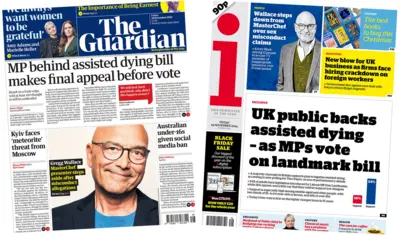We've updated our Privacy and Cookies Policy
We've made some important changes to our Privacy and Cookies Policy and we want you to know what this means for you and your data.
Colombia negotiator says Farc talks must 'pick up pace'
Image source, AP
Top Stories
The chief Colombian government negotiator has said he wants to speed up the pace of peace talks with Farc rebels.
"We must move ahead with responsibility but at faster pace," said Humberto de la Calle as he left for Cuba where negotiations are set to resume.
The talks, aimed at ending four decades of conflict in Colombia, have focused initially on land reform.
The rebels have declared a unilateral ceasefire, but clashes have continued.
The Farc ceasefire expires on 20 January.
Top Stories
The Colombian government refused to cease military operations during the talks, saying rebels would use the opportunity to rearm.
President Juan Manuel Santos's government has stated that both sides must come to an agreement by November.
'Realistic approach'
"The government negotiating team is fully aware that the country is longing for a peaceful solution," said Mr La Calle.
"That is why we have been taking a realistic approach and making sure we do not create false expectations over the outcome of the talks."
The rebels have rejected the government deadline. They say the issues are too complex.
Top Stories
Image source, AP
Both sides "will have to take as long as necessary to reach peace," chief Farc negotiator Ivan Marquez said.
The talks will also focus on four other issues:
- the end of armed conflict
- guarantees for political opposition and citizen participation
- drug trafficking
- the rights of victims of the conflict.
The negotiations were launched in Norway on 18 October, before moving to the Cuban capital a month later.
Hundreds of thousands of people have been killed in the conflict in Colombia since the Farc (Revolutionary Armed Forces of Colombia) was founded in 1964.
The Colombian government says the final aim of the negotiations is to get the rebels to abandon their armed struggle and join the legal political process.
Top Stories
More to explore
Most read
Content is not available








